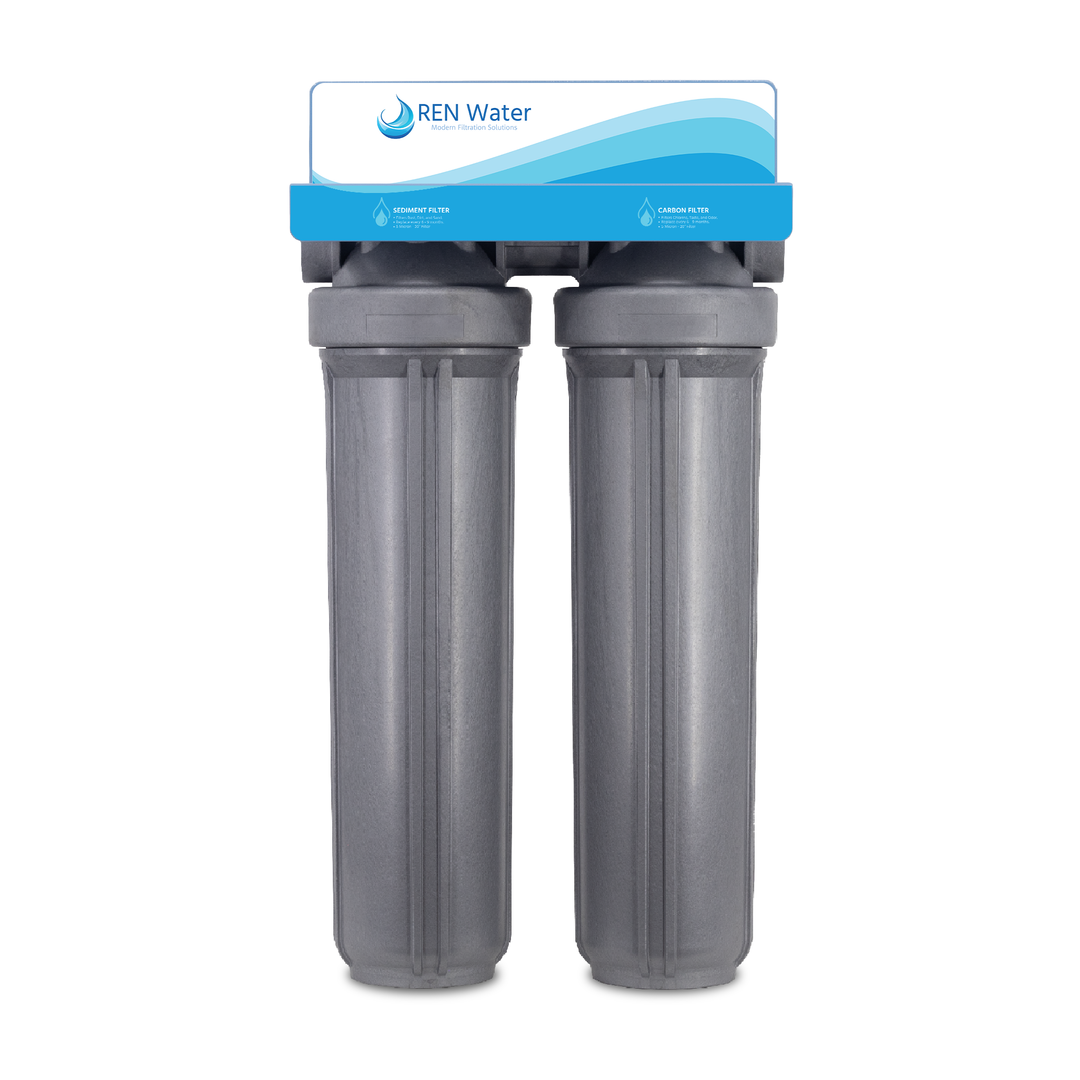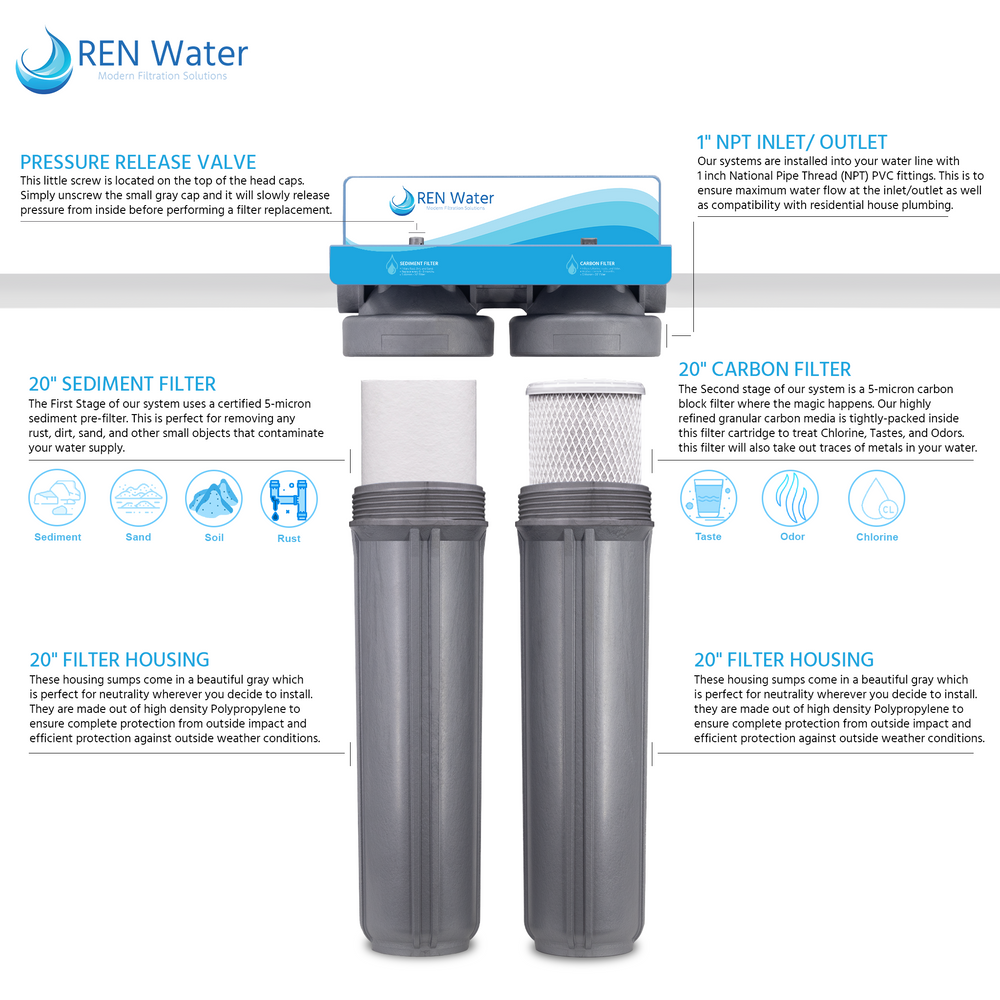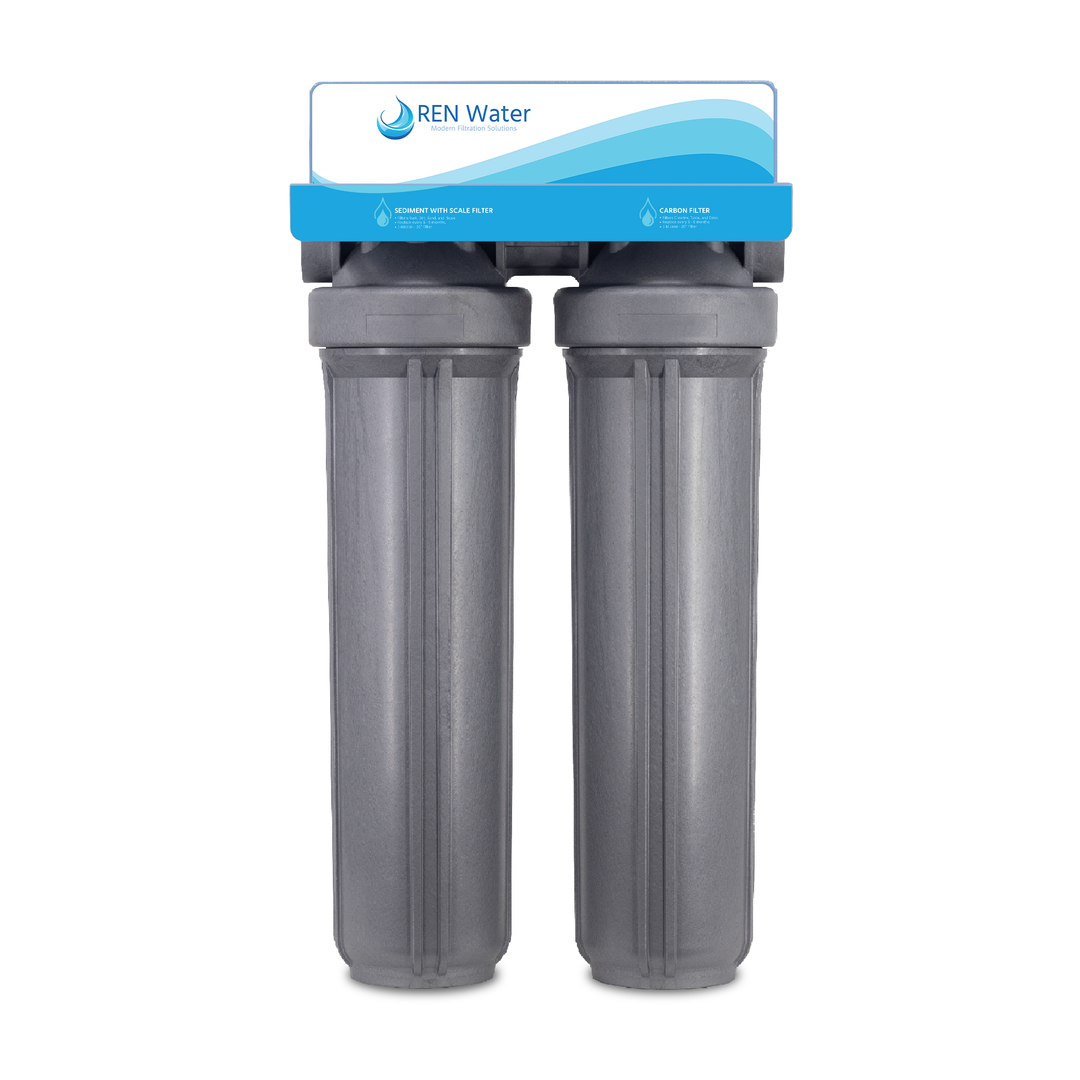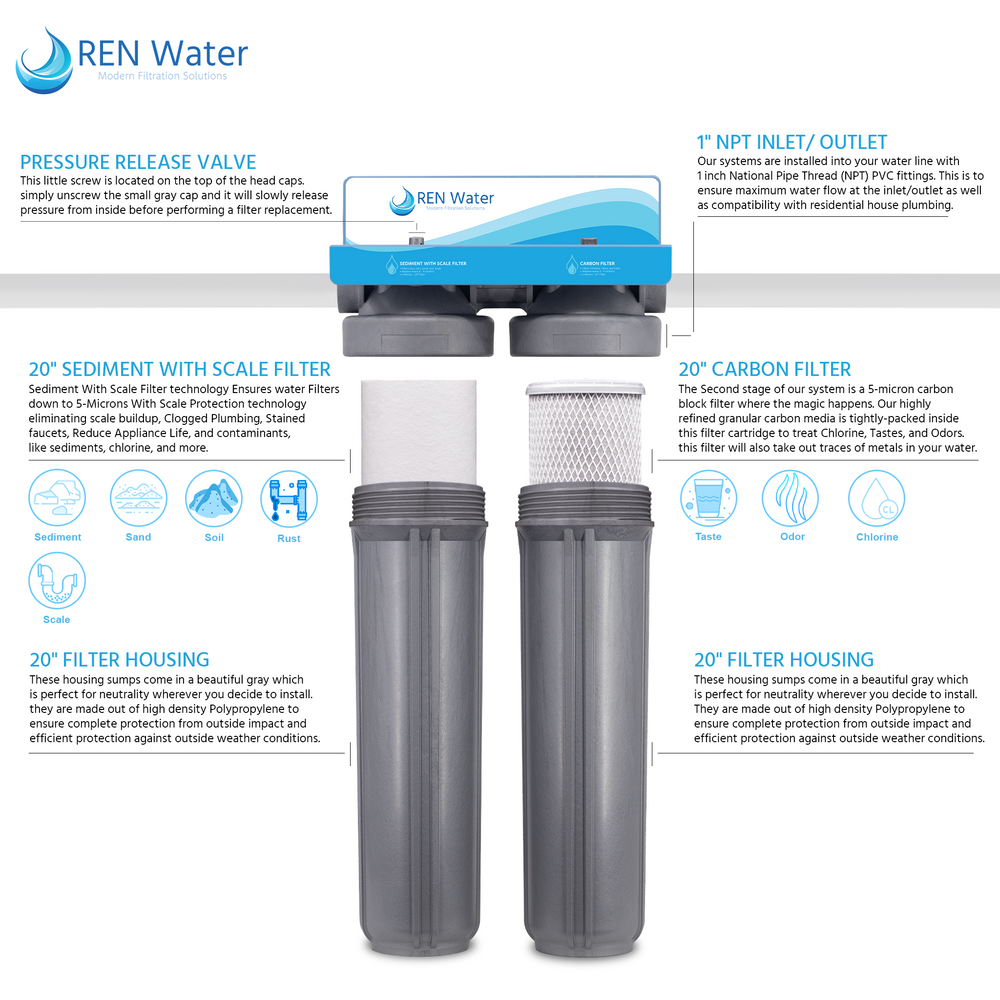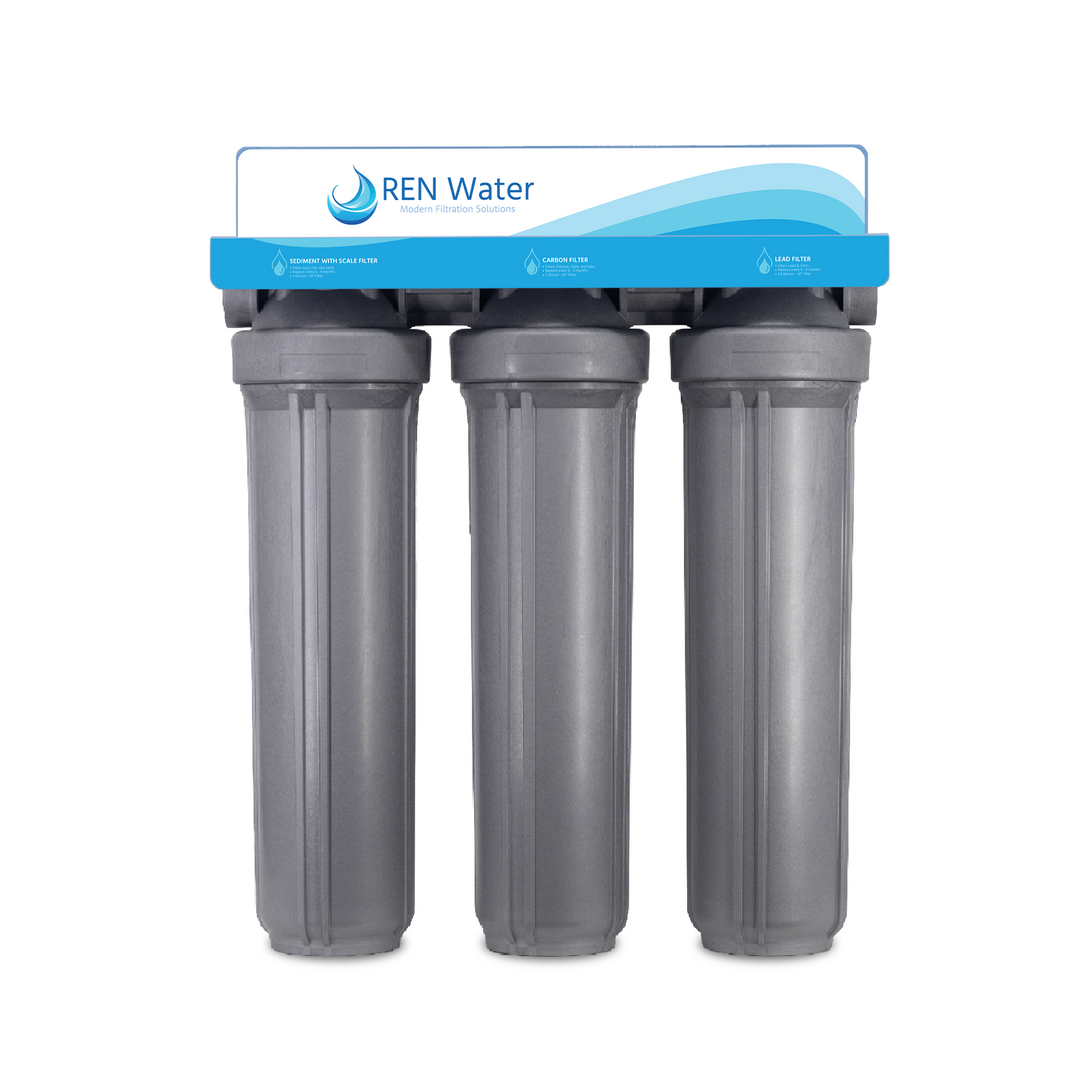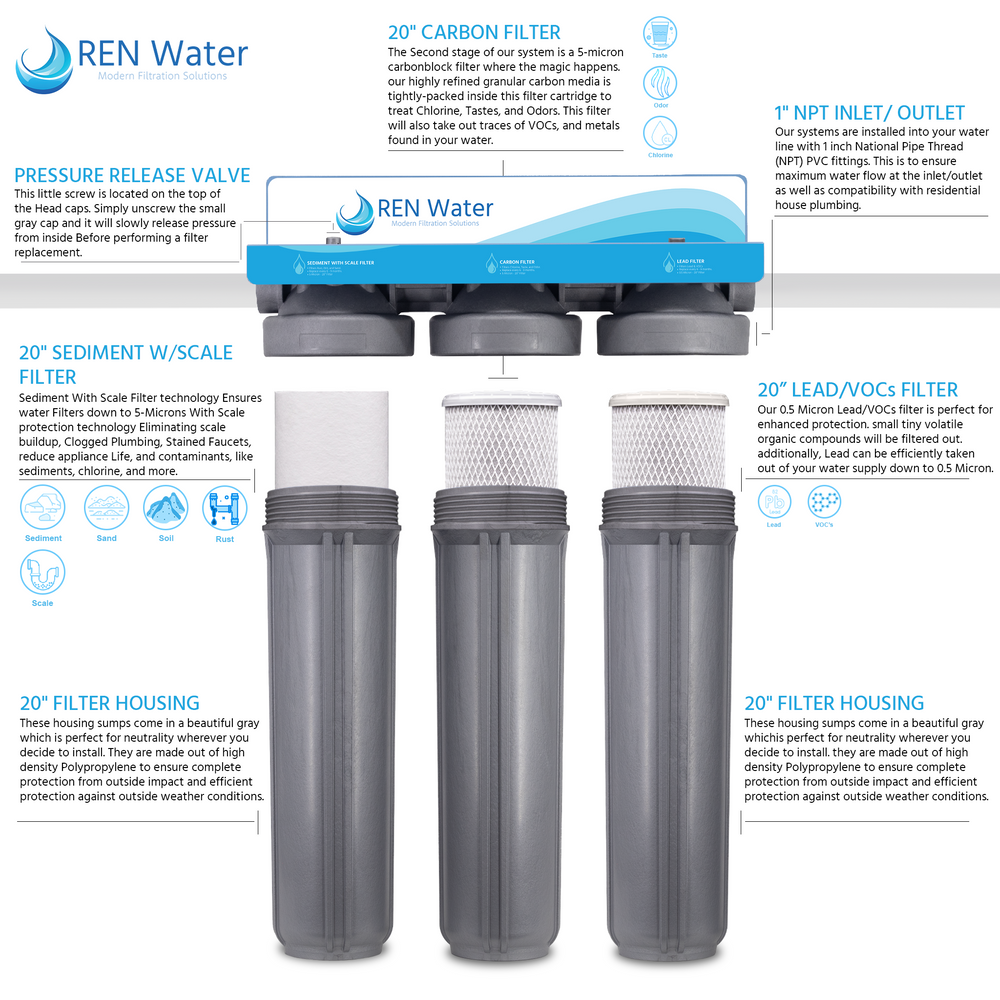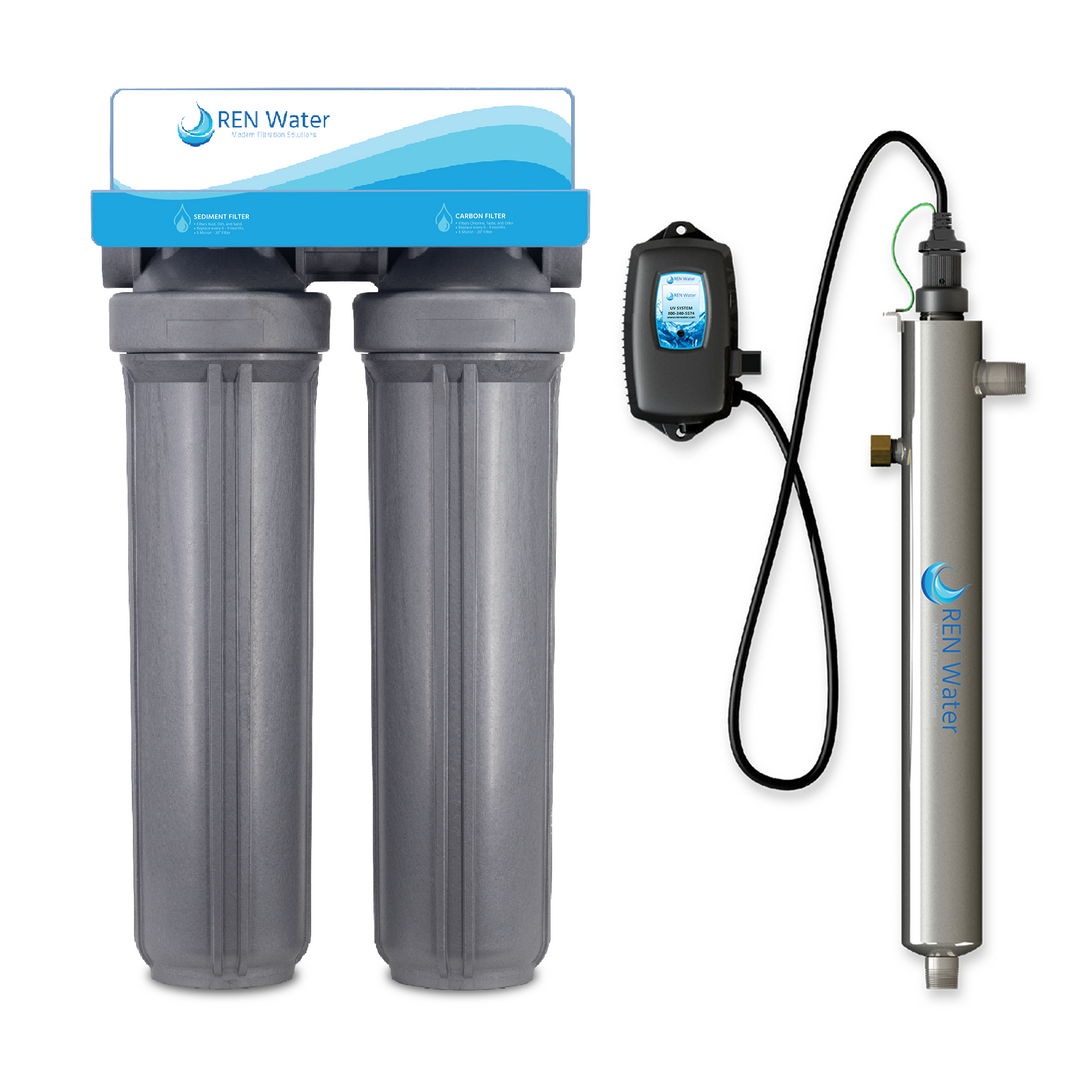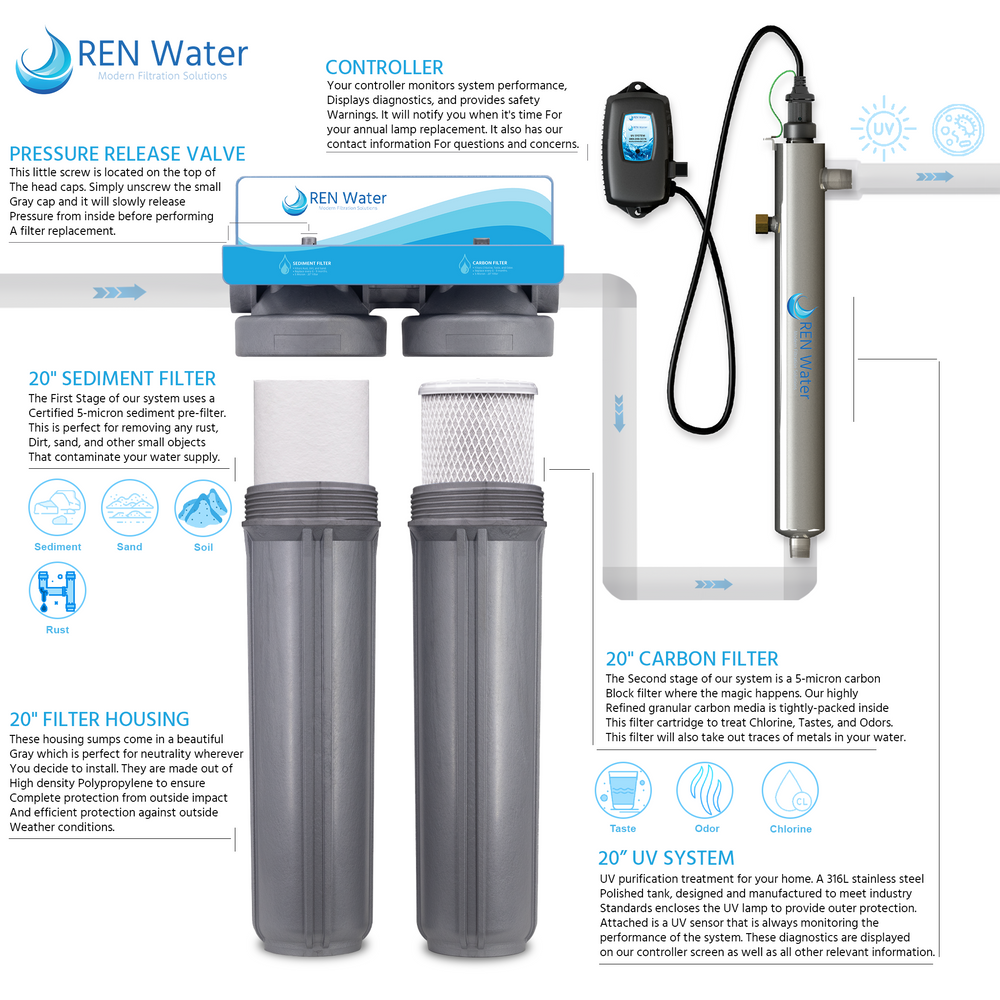Well Water vs. City Water Explained
Introduction
When it comes to your home's water source, the decision between well water and city water is more than just a matter of convenience—it's about ensuring the safety, reliability, and quality of your water supply. In this comprehensive guide, we'll delve into the disparities between these two water sources, explore their respective pros and cons, and provide recommendations for selecting the most suitable option for your home.
Table of Contents
- Difference Between Well Water and City Water
- Pros and Cons of Well Water
- Pros and Cons of City Water
- Comparison Between Well Water and City Water
- How Do I Identify Contaminants in My Water?
- Recommendations for Water Filtration
- Conclusion
Difference Between Well Water and City Water
Understanding the fundamental disparities between well water and city water is essential for making an informed decision:
- Well water is sourced from private wells drilled into underground aquifers, whereas city water is supplied by municipal governments through centralized treatment plants.
-
Well water is typically untreated and lacks the chemical additives found in city water, such as chlorine and fluoride.
- City water undergoes regular testing and treatment to ensure compliance with safety standards set by regulatory authorities.
Pros and Cons of Well Water
Pros
-
No Water Bills: One of the most significant advantages of well water is the absence of monthly water bills, providing homeowners with long-term cost savings and financial flexibility.
-
High Nutrients and Minerals: Well water often contains beneficial nutrients and minerals naturally present in the earth, contributing to overall health and well-being.
Examples of nutrients and minerals commonly found in well water include:
- Calcium: Essential for bone health and muscle function.
- Magnesium: Helps regulate muscle and nerve function, blood sugar levels, and blood pressure.
- Potassium: Important for heart health, muscle function, and electrolyte balance.
- Iron: Necessary for the production of hemoglobin and oxygen transport in the blood.
- Manganese: Plays a role in metabolism, bone formation, and antioxidant defense.
- Sulfur: Contributes to the formation of proteins and enzymes, as well as overall cellular health.
- Bicarbonate: Helps maintain proper pH levels in the body and supports digestion.
- Silica: Promotes healthy skin, hair, and nails, and may have antioxidant properties.
- Increases Property Value: Homes with well water may have higher property values due to self-sufficiency, environmental appeal, and the perceived quality of water.
Cons
-
Contamination Potential: Despite its natural origins, well water is susceptible to contamination from various sources, including agricultural runoff, industrial pollutants, and septic system leakage. Regular water testing and treatment are necessary to mitigate these risks.
-
Maintenance Costs: Maintaining a well system involves ongoing expenses, including well digging, well pump maintenance, electric pump operation, and periodic inspections by certified professionals.
- Dependency on Electricity: Well pumps rely on electricity to extract water from underground aquifers, posing challenges during power outages and emergencies. Investing in backup power solutions, such as solar-powered pumps or generator backups, can help ensure continuous access to water.
Pros and Cons of City Water
Pros
-
Government Responsibility for Testing and Treatment: Municipalities are responsible for ensuring the safety and quality of city water through rigorous testing, treatment, and compliance with regulatory standards. This centralized approach provides reassurance to residents regarding the reliability and safety of their water supply.
- Widespread Availability: City water is readily accessible to urban and suburban areas, offering convenient access for residents without the need for individual well drilling or water infrastructure investment.
Cons
-
Exposure to Chemicals: Despite treatment efforts, city water contain chemical additives such as chlorine and fluoride, which are used to disinfect and fluoridate the water supply. Prolonged exposure to these chemicals may raise concerns about potential health risks and adverse effects on taste and odor.
- Water Bills: City water users are subject to monthly water bills, which can vary based on usage, local utility rates, and infrastructure maintenance costs. Managing these expenses effectively requires budgeting and monitoring of water consumption.
Comparison Between Well Water and City Water
Choosing between well water and city water involves considering various factors and trade-offs:
-
Ease of Use vs. Contamination Risks: While city water offers convenience and reliability, well water may have fewer chemical additives and provide a more natural taste. However, well water requires vigilant water testing and treatment to address potential contamination risks from environmental pollutants.
- Cost Considerations and Maintenance Requirements: While well water eliminates monthly water bills, it entails ongoing maintenance costs, including well pump repairs, electric pump operation, and water testing expenses. In contrast, city water users benefit from predictable monthly bills but may incur higher overall costs over time due to infrastructure maintenance and usage fees.
How Do I Identify Contaminants in My Water?
Determining what Contaminants your water has. Public water suppliers are typically required to test for contaminants levels, and the results should be accessible to the public. If you rely on a private well for your water supply, it's advisable to have it tested for all contaminants.
We know how important it is for you to make sure that your family and loved one's are healthy and safe, That's why REN Water partnered with HealthGuard Lab's a certified laboratory that utilizes advanced testing methods. HealthGuard Labs kits deliver precise and reliable results, ensuring you have accurate information about your water quality.
WATER TEST KIT
Recommendations for Water Filtration
Regardless of your chosen water source, investing in water filtration is essential for ensuring safety, taste, and overall water quality:
-
Water Filtration for Well Water:
Install water filtration systems specifically designed to address the unique contaminants found in well water, such as sediment, bacteria, and dissolved minerals. Options include whole-house filtration systems, point-of-use filters, and UV disinfection units.
-
Water Filtration for City Water:
Choose water filtration systems capable of removing chemical additives, impurities, and contaminants commonly found in city water, such as chlorine, chloramines, lead, and volatile organic compounds (VOCs). Consider activated carbon filters, reverse osmosis systems, and ion exchange resins for comprehensive water treatment.
NSF Certification
When investing in water filtration systems, look for products certified by the National Sanitation Foundation (NSF). NSF certification ensures that a product meets strict standards for quality, performance, and safety. Choosing NSF-certified filters provides assurance that the system is reliable and effective in removing contaminates from your water supply. This stamp of approval ensures that the product adheres to stringent quality and safety standards, making it a reliable choice for those seeking a water treatment solution they can trust.
Conclusion
In conclusion, the decision between well water and city water involves careful consideration of various factors, including water quality, cost, convenience, and maintenance requirements. By understanding the pros and cons of each option and implementing appropriate water filtration solutions, homeowners can enjoy clean, safe, and refreshing water for their household needs.
For expert advice on water filtration solutions tailored to your specific requirements and water quality concerns, contact us!




